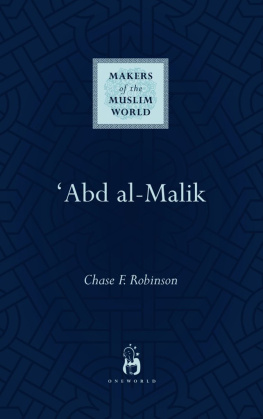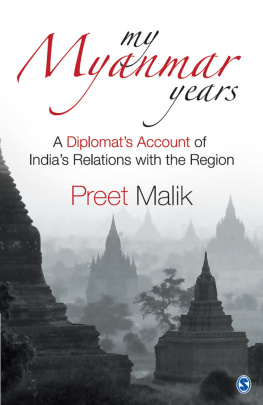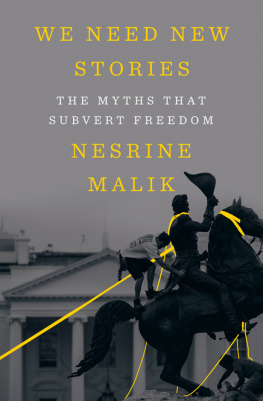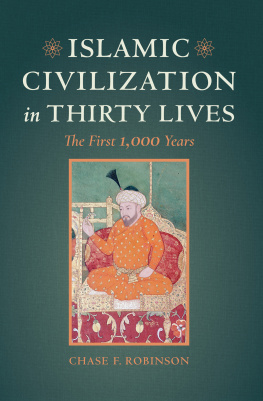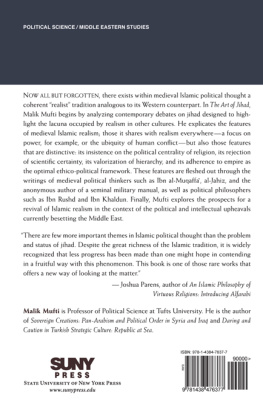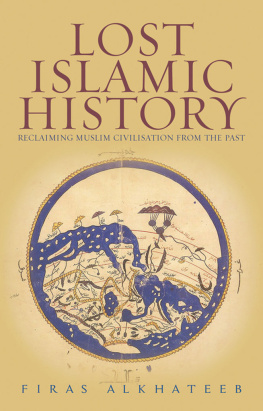
SELECTION OF TITLES IN THE MAKERS OF THE MUSLIM WORLD SERIES
Series editor: Patricia Crone,
Institute for Advanced Study, Princeton
Abd al-Malik, Chase F. Robinson
Abd al-Rahman III, Maribel Fierro
Abu Nuwas, Philip Kennedy
Ahmad ibn Hanbal, Christopher Melchert
Ahmad Riza Khan Barelwi, Usha Sanyal
Al-Mamun, Michael Cooperson
Al-Mutanabbi, Margaret Larkin
Amir Khusraw, Sunil Sharma
El Hajj Beshir Agha, Jane Hathaway
Fazlallah Astarabadi and the Hurufis, Shazad Bashir
Ibn Arabi, William C. Chittick
Ibn Fudi, Ahmad Dallal
Ikhwan al-Safa, Godefroid de Callatay
Shaykh Mufid, Tamima Bayhom-Daou
For current information and details of other books in the series, please visit www.oneworld-publications.com/subjects/makers-of-muslim-world.htm

ABD AL-MALIK
Oneworld Publications
10 Bloomsbury Street
London WC1B 3SR
England
First published by Oneworld Publications, 2005
This ebook edition first published in 2012
Chase F. Robinson 2005
All rights reserved
Copyright under Berne Convention
A CIP record for this title is available from the British Library
ISBN-13: 9781851683611
ebook ISBN: 978 1780741864
Typeset by Jayvee, India
Stay up to date with the latest books, special offers, and exclusive content from Oneworld with our monthly newsletter
Sign up on our website
www.oneworld-publications.com
TO KAZUO
ILLUSTRATIONS
Dome of the Rock
PREFACE
B iographers have the habit of inflating the significance of their subjects, but this biographer is certain that if any Muslim ruler deserves a book, it is Abd al-Malik (d. 705), to whom history owes the first Islamic state. A strong case could be made for others, but I think only the Prophet Muhammad himself exerted more influence upon the course of early Islamic history.
Whether he deserves this book is another matter. It assumes no familiarity with Islamic history and is written in a style that is intended to provoke the readers curiosity. It is also short, and so I fear that those expecting a thorough survey of the life and times of its subject will be disappointed (even more so those expecting scimitars and dancing slave girls). The book is short in part because that is what this series mandates, and also in part because I have only very inadequate evidence to work with; being unsure of so much, I have opted to say relatively little. Considering how grave this problem is, I make less of it than I might have, but I still think that most readers will be struck by how frequently I am forced to wrestle with my evidence. I should also add that my interests lie not so much in politics, sectarianism and warfare, which are the principal interests of our inadequate sources, as much as they do in broader questions of state formation and empire building, about which our sources say considerably less. But in these processes Abd al-Malik had a crucial role. While everything I write will be new to the beginner, some of what I argue, especially concerning Ibn al-Zubayr and the construction of Abd al-Maliks state, will be unfamiliar to most everyone else. I have suppressed all notes, but I indicate the sources of passages quoted directly; I have also included a brief bibliography and a guide to further reading.
In theory, the history made by Muslims in the seventh and eighth centuries should be as explicable and comprehensible to non-Muslim Westerners as that made by anyone else at any other time. In practice this is not the case, since they made their history as Muslims in Arabic. Because both Islam and the Arabic language are poorly understood in the West, I have included some aids for the uninitiated: a few illustrations, maps and charts, in addition to a chronology and glossary of names and terms. I encourage the reader to dog-ear the last of these. Although I have tried hard to minimize the number of these names and terms, I have not always succeeded.
ACKNOWLEDGMENTS
I am grateful to Patricia Crone, Amikam Elad, Matthew Gordon, Andrew Marsham, John Robinson, Adam Silverstein and Lesley Smith for commenting and criticizing all or parts of what follows, to Christopher Melchert for exchanging and improving ideas, to Victoria Roddam for exercising patience and answering production queries, and to the Board of the Faculty of Oriental Studies, Oxford for defraying some costs.
Pictures: courtesy of Amikam Elad.
GLOSSARY
Abd al-Aziz Brother of Abd al-Malik; governor of Egypt.
Abu Bakr First caliph (r. 632634).
Ali Cousin and son-in-law of Muhammad; fourth caliph (r. 656661).
Amr b. Said Rival of Abd al-Maliks.
Ansar Helpers those who lived in Medina and supported Muhammad there.
Bishr b. Marwan Abd al-Maliks brother; governor of Iraq from 6924.
Companion Contemporary of the Prophet Muhammad.
Farazdaq Poet (d. c. 730).
Fitna Civil war.
Hadith Prophetic sayings and traditions.
al-Hajjaj b. Yusuf Governor in Iraq and then the East for Abd al-Malik and al-Walid from 693.
Hijaz The part of western Arabia where Mecca and Medina are located.
Ibn al-Ashath Commander and rebel.
Ibn al-Zubayr Companion of the Prophet and caliph (r. 683692).
imam Leader endowed with religious authority.
jihad fighting on behalf of God; holy war.
Kharijites Sectarian rebels against Umayyad rule.
Marwan Abd al-Maliks father and eponym of Marwanids.
Marwanids Family of the clan of Umayyads named after Abd al-Maliks father.
Muhammad The Prophet (b. c. 570; d. 632).
Muhammad b. al-Hanafiyya Son of Ali.
Muhammad b. Marwan Abd al-Maliks brother; governor of northern provinces.
Muawiya Governor in Syria for Uthman and then caliph (r. 661680).
Muhajirun Emigrants those who emigrated with Muhammad from Mecca to Medina.
Mukhtar Rebel during the Second Civil War.
Musab b. al-Zubayr Brother of Ibn al-Zubayr; governor of Iraq.
Shabib b. Yazid Kharijite rebel in Iraq.
Sufyanids Family of the clan of Umayyads who ruled before the Marwanids.
Umar Second caliph (r. 634644).
Uthman Third caliph and first Umayyad to rule (r. 644656).
al-Walid b. Abd al-Malik Abd al-Maliks son and successor as caliph (r. 705715).
Yazid b. Muawiya Muawiyas son and successor as caliph (r. 680683).
CHRONOLOGY
| Birth of Abd al-Malik |
| Accession of the caliph Muawiya in Syria |
| Death of Muawiya; succession of his son, Yazid; death of Alis son, al-Husayn |
Next page
